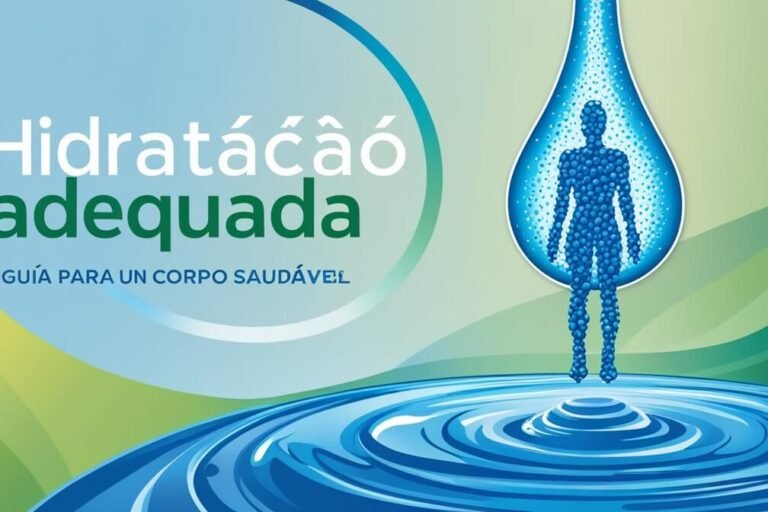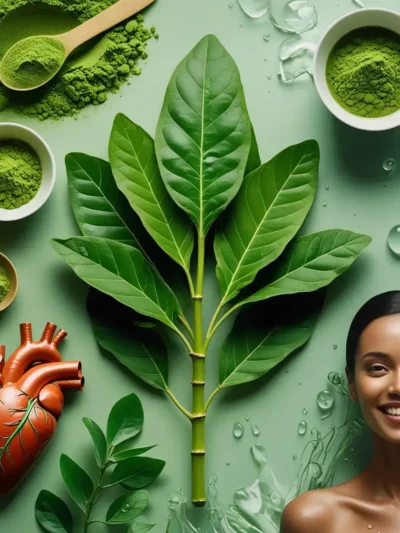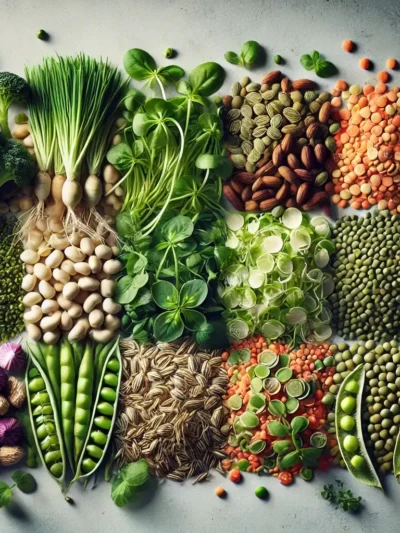Today we are going to talk about our complete guide on adequate hydration and the benefits it brings to the health of the body! We know how important it is to take care of our body, and hydration plays a fundamental role in this process.
We often underestimate the power of drinking enough water throughout the day and the positive impacts it can have on our overall well-being.
After all, our body is made up of about 60% of water and needs it to function properly.
But what does it mean to have a adequate hydration? What benefits does it provide for our health? That is exactly what we will explore in this section, so that you can understand the importance of staying well hydrated.
So, get ready to find out how the adequate hydration can transform your life and contribute to a healthy body. Let's go!
How to Hydrate Yourself Properly

Proper hydration of our body is essential for maintaining optimal health.
To know how to hydrate yourself properly It is essential to ensure that we are giving our bodies the appropriate amount of water to function properly.
In this section, we'll share practical tips and guidance on how to hydrate your body the right way, so you can feel and stay healthy.
Recommended Water Consumption
One of the main issues is understanding the recommended amount of water consumption daily.
The US Institute of Medicine suggests that men should consume approximately 3.7 liters per day, while women should consume about 2.7 liters.
These numbers may vary depending on factors such as age, level of physical activity and weather conditions, but serve as a general reference.
Remember that water intake can also be obtained through other liquids, such as natural juices and teas, in addition to foods that contain a high water content.
How to Stay Hydrated Throughout the Day

Staying hydrated throughout the day can be a challenge, but a few simple strategies can help.
Here are some tips:
- Drink water as soon as you wake up to make up for the fluids lost during the night.
- Always carry a bottle of water with you and stay hydrated throughout the day.
- Set reminders to drink water regularly.
- When doing physical activities, drink water before, during and after. exercise.
- Include foods with high water content in your diet, such as fruits and vegetables.
- Consuming excessive amounts of alcohol and caffeine can lead to dehydration.
Follow these simple tips and you'll be on your way to staying properly hydrated and keeping your body healthy.
| Amount of water (liters) per day | |
|---|---|
| Men | 3.7 |
| Women | 2.7 |
Signs of Dehydration

It is crucial that we are aware of the signs of dehydration to ensure that our bodies are always adequately hydrated.
By identifying these signs, we can act quickly and increase our fluid intake to avoid health problems related to dehydration.
1. Dry Mouth and Lips
One of the first signs of dehydration is the sensation of dry mouth and chapped lips.
This occurs because, when we are dehydrated, our body reduces the production of saliva, which causes dryness in the mouth.
2. Dark Urine or Less Frequent Urination
Another indicator of dehydration is dark urine color or decreased urinary frequency.
When we are properly hydrated, our urine tends to be clear or slightly yellow.
However, when we are dehydrated, the urine becomes more concentrated and dark.
3. Fatigue and Dizziness
A lack of fluids in the body can cause fatigue, weakness and dizziness. This is because dehydration affects blood circulation and the delivery of nutrients and oxygen to the cells of our body, resulting in feelings of tiredness and imbalance.
4. Decreased Skin Elasticity
Signs of dehydration can also be observed on the skin. When we are hydrated, our skin looks healthy and elastic.
However, when our body lacks water, the skin loses its natural elasticity and can become wrinkled, dry and rough in texture.
5. Low Sweating
When we are dehydrated, our body reduces sweat production as a way to conserve water.
So if you notice that you are sweating less than usual, even in hot weather, it could be a sign of dehydration.
6. Headache and Irritability
A lack of fluids in the body can lead to intense headaches and irritability.
Dehydration affects blood flow to the brain and compromises its proper functioning, leading to symptoms such as headache and mood swings.
It's important to remember that these are just some of the common signs of dehydration. Each person may experience symptoms differently.
If you notice any of these signs, it is essential to increase your fluid intake and seek medical attention if symptoms persist or worsen.
Conclusion

After exploring the benefits of proper hydration and learning how to hydrate yourself properly, we conclude that the daily hydration is essential to keep our health up to date.
Keeping our body properly hydrated is essential for the proper functioning of all our organs and systems.
By regularly drinking liquids, such as water, natural juices and teas, we can help prevent dehydration and enjoy a series of benefits for our body.
THE daily hydration It improves our digestion, helps eliminate toxins, keeps our skin healthy and radiant, and even helps regulate body temperature.
So don't underestimate the power of daily hydration.
Remember to drink water regularly throughout the day and include water-rich foods in your diet.
With these simple precautions, you will be on the right path to achieving a healthy and hydrated life.
Frequently Asked Questions
Why is it important to maintain adequate hydration?
By hydrating yourself correctly, your body will function correctly.
Water plays several vital roles in our body, such as regulating body temperature, transporting nutrients, eliminating toxins and maintaining cell health, among other benefits.
What are the benefits of hydration for the body?
By hydrating correctly, your body will return many benefits.
In addition to helping maintain the proper function of vital organs, it also contributes to more beautiful and healthy skin, improves the functioning of the digestive system, and aids in weight loss, prevents headaches and helps regulate mood.
What is the recommended amount of water consumption per day?
The recommended amount of water consumption per day can vary depending on several factors, such as age, weight, physical activity and health conditions.
However, a general recommendation is to drink 8 glasses of water a day, equivalent to 2 liters of water/day.
How can I stay hydrated throughout the day?
To stay hydrated throughout the day, you can take some simple steps, such as carrying a bottle of water with you at all times, setting times to drink water, eating foods rich in water, such as fruits and vegetables, and avoiding excessive consumption of drinks that can cause dehydration, such as coffee and alcohol.
What are the main signs of dehydration?
The main signs of dehydration include thirst, dark or reduced urine, dry mouth, fatigue, dizziness, headache, constipation and dry skin. It is important to be aware of these signs and increase fluid intake if they are observed.









